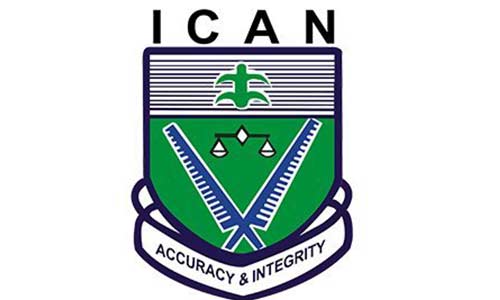The Institute of the Chartered Accountants of Nigeria (ICAN) has advised the federal government and the Rivers State government to approach their on-going tussle over the collection of Value Added Tax (VAT) carefully. This is to avoid hurting vulnerable households, and Small and Medium-sized Enterprises (SMEs), and worsening the country’s Ease of Doing Business (EoDB).
ICAN gave the advice in a statement yesterday by its Registrar/Chief Executive, Professor Ahmed Kumshe.
The professional body made reference to the judgement of the Federal High Court in Suit No. FHC/PH/149/2020 between the Attorney General of Rivers State, on the one hand, and the Federal Inland Revenue Service (FIRS) and the Attorney General of the Federation.
The Federal High Court had ruled in favour of Rivers State regarding the power to collect VAT.
Kumshe said, “We implore the government of Rivers State and the federal government to seek an amicable resolution of this issue sooner rather than later. It should not be allowed to degenerate, given the country’s precarious tax revenue position and the general business environment. It is important to protect the taxpayers and provide certainty to businesses.
“We believe that this development presents an opportunity for us to re-examine our fiscal federalism and leverage on the on-going constitution review to fashion out the most suitable fiscal structure for the country in a manner that strengthens the sub-national level of government while ensuring uniformity of treatment as much as possible.
“This process should include a review of the VAT law, its administration and revenue sharing formula.”
ICAN restated that the matter should be approached carefully in order to achieve a win-win outcome for all stakeholders as well as address areas of concerns, such as the impact on EoDB, multiplicity of taxes, capacity of tax administration and impact on vulnerable households and small businesses.
Commenting on the effect on the EoDB, the institute warned, “If the position is sustained and replicated by other states, it will increase the cost and time required for compliance by businesses in addition to the complexity of administering VAT at the sub-national level such as treatment of international and inter-state transactions.”
ICAN, however, said the trend could lead to multiplicity of taxes as, “many states still have various taxes, which are similar in nature to consumption tax, including the Hotel Occupancy and Restaurant Consumption tax, Entertainment Tax, etc.
“Administering VAT at the state level may add to the myriad of taxes across different levels of government many of which are targeted at the same tax base.”
Furthermore, the institute expressed concern over the capacity of the state governments to administer its own VAT.
It explained, “Collection of VAT by states may be more demanding, especially, in the short to medium terms, in the aspect of VAT skills and knowledge, dealing with digital transactions, VAT audit, and dispute resolution.”
ICAN warned that the trend could have a telling impact, “on vulnerable households and small businesses, in the absence of exemption threshold for small businesses and limited list of exempt goods and services, there may be adverse effect on the masses in Rivers State, especially, poor households and SMEs.”
The institute, while tracing the history of the introduction of VAT in Nigeria, said there had been series of legal cases against the VAT law, its administration by FIRS and powers of states to enact similar laws, such as sales or consumption tax, which was enacted by Lagos State in 2009.

